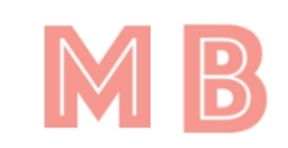Feb 2025: news for emerging authors
Dear emerging authors and writers working on emerging soon-ish,
Welcome to this somewhat weighty edition of News For Emerging Authors. Who’d have thought it would only take 2025 a couple of months to let us know that the change I warned you about last month, is very much here and making itself known? Thankfully, I have waded through some long reads from February that tell us exactly what we need to know about engaging with the publishing industry at the moment. Buckle up, there may be some bumps ahead.
To blurb or not to blurb: UK trade weighs in on author quotes in 2025
I will tell you from experience that once you have published your first book, and it has hopefully brought you a modicum of success, you will likely be asked to blurb a book. Naturally as a bookworm, you’ll probably say yes immediately and quickly discover that your pile of unread books (now proofs) is growing higher and higher as you suddenly have less time to read because you’re busy working on your next writing project.
The time it takes for authors is only half of the problem, of course. For many of us, no matter how far along in our career, waiting for quotes from writers we admire can be anxiety inducing and it seems as if (capital P) Publishing isn’t certain that the blurbs help to sell books at all. It depends on the reader, the author and the topic. Which is basically the rule for every book ever published.
The article poses an interesting question, though; do you need a blurb for your book in order for it to sell? There is something to be said for ignoring the status quo when it comes to your own book. Of course, it’s brilliant when writers you love provide quotes that recognise your hard work but in the interest of saving your mental health, it’s worth keeping in mind that blurbs (whether they come through or not) are only a small part of getting your book published and getting it into the hands of readers.
‘Hopeful’ June Sarpong celebrates diversity at Akan Books launch party
Enter Akan Books, the new imprint at HarperCollins, intent on building a little differently. In considering the current political climate, broadcaster June Sarpong, who is spearheading the imprint, noted: “We’re now in an interesting phase, to say the least...There’s a lot of panic around. We all know that inclusion works. Those that stick with it will be the beneficiaries, because the world is changing... For me, I’m very hopeful and still excited about our progress. I truly believe that we will come out the other side.”
I will always encourage you, dear writers, to consider what you value most when it comes to sharing your work, so that you can find a publisher who aligns with those values. And not to get all dictionary-doctor on you (a phrase I just made up) but let’s remind ourselves of why inclusion benefits us all with the definition: “The practice or policy of providing equal access to opportunities and resources for people who might otherwise be excluded or marginalised.”
I will always encourage you, dear writers, to consider what you value most when it comes to sharing your work, so that you can find a publisher who aligns with those values
This means everyone, in some shape or form, has equal opportunity to have their voices heard, their stories read and themselves represented in some way. And this extends to race, class, sexuality, physical disabilities, neurodivergence, age and gender. As authors, we know that having access to a wider range of stories will inevitably fuel and challenge us to write bigger and better stories.
It can be easy to get lost in the misinformation surrounding collective equality but it’s more important than ever for authors to review our own role in adding to the furore.
‘Carelessness rife’ in UK publishing fact-checking as concerns grow over workloads, AI and ‘status bias’
People are overworked and underpaid in publishing and sadly fact checking is taking a particularly hard hit because of it. And that’s not to mention the threats that AI and government decisions about AI currently pose.
Unfortunately, there isn’t a quick fix for this one. If you’re fortunate enough to have a dedicated and attentive team attached to the publication of your book then hopefully only a couple of typos will slip through to final publication. But listen – it’s worth getting into the habit now of doing deep edits and copy edits of your own work. You have to be confident that by the time you’re passing your work to the editorial team you can say, with at least 95% certainty, that the work is accurate to the best of your knowledge. There are so many more ways in the today of things, to cut corners and cause print mistakes that cannot be erased. Prevention is always better than the cure, so lean into that Type A version of yourself when you’re pouring over that manuscript line by line – as long as you know when to stop, it’ll help you in the long run.
Like I said, February may have been short but it was substantial in what it brought. Now go take a breather.
